Lottie Awards 2025 is live! Click here to view the winners including the UK’s Top 100 care homes!
Hannah Karim

About Me & Career Pathway
I joined Lottie as a Care Expert in December 2021, before becoming a Care Expert Manager in September 2022. Our team is knowledgeable in all aspects of elderly care and helps care seekers find care for themselves or their loved ones.
As Lottie's Lead Care Expert, I work closely with families each day to understand their unique elderly care needs and preferences. My role involves guiding families and care seekers from the initial consultation through to the start of care, ensuring a smooth and supportive experience. We specialise in matching care seekers with the right care homes or home care services, considering their specific health requirements, such as round-the-clock nursing care and dementia care, as well as personal preferences like homes with gardens or those that accommodate couples.
In November 2023, I became the Senior Customer Care Manager of Lottie’s Care Expert team, before becoming the Customer Care Lead in November 2024. In this capacity, I oversee all team operations across Lottie and Seniorcare By Lottie, our eldercare employee benefits service. My experience and qualifications in health and social care, alongside my expertise in the elder care space, allow me to help families find the best care for their needs.
Qualifications, Certifications and Topics of Expertise
As an expert in care, I’ve been covered in leading publications such as The Daily Mirror, Hello! and Yahoo Life UK, talking about relevant topics such as Alzheimer’s disease and dementia care, menopause and the challenges of juggling work responsibilities and elder care.
I have received training from:
- The NHS (and have obtained an NHS Care Certificate)
- The National Bereavement Service (bereavement support)
- Mind (mental health support)
- Integrated Care Board (ICB) leads
- Financial Conduct Authority (FCA) & Society of Later Life Advisers (SOLLA) accredited financial advisers
I’m also a certified Dementia Friend and a Society of Later Life Advisers (SOLLA) affiliate member.

Your Checklist Of Questions To Ask When Viewing a Care Home
Click here for a checklist of questions to ask when viewing a care home. Our checklist will guide you through the process so you can make a confident choice.

Meet The Care Home Residents Redefining Fashion | London Fashion Week 2025
We've partnered with four care home residents to celebrate London Fashion Week, showing that age and dementia are no barriers to creativity and self-expression.

Average Age To Go Into a Care Home + Other Key Care Home Statistics
Discover invaluable information for care seekers, including the average age people go into care homes, and how to know the right time to enter a care home.

What the 2024 Autumn Budget Means For Older Adults and Unpaid Carers
The government has unveiled their 2024 Autumn Budget, with several key callouts for older adults and unpaid carers. Here are the most important points.

Six Weeks of Free Care After a Hospital Stay | NHS Intermediate Care
This article explains whether you’re eligible for six weeks of free intermediate care after a hospital stay, how intermediate care works and what happens after.

Care Funding in Scotland | Who Pays For Care?
We’ve explained care funding in Scotland, including whether you or your local council will pay for care, and whether you could be eligible for NHS funding.

Care Funding in Wales | Check Eligibility For Funding Support
This article explains care funding in Wales, including whether you or your local council will pay for care, both in a care home and through home care.

Sandwich Carers Are Left £1,546 Out of Pocket This Summer as the Cost of Care Rises
Sandwich carers often struggle to care for both their elderly loved ones and children. We've explained the challenges they face and the support available.

Self-Funding Care | How Paying For Your Own Care Works
The total value of your savings and income (and assets for care in a care home) determines whether you'll pay for care. Here's how self funding care works.

Do You Have To Pay For Care If You Have Parkinson's Disease?
We've explained if people living with Parkinson's have to pay for care, including home care and care in a care home, and if you're eligible for NHS funding.

Do People Living With Dementia Have To Pay Care Home Fees?
This article explains whether people living with dementia have to pay care home fees, along with other funding support and benefits you could be eligible for.

Selling My Parent’s House To Pay For Care | Is This Needed?
If you or your parents are going into care, you might be wondering how this will be paid. We've explained the different care funding options available.

What Is The 7 Year Rule For Care Home Fees?
The 7-year rule for care home fees relates to giving away your assets. We've explained how this works and whether they'll be counted in an assessment.
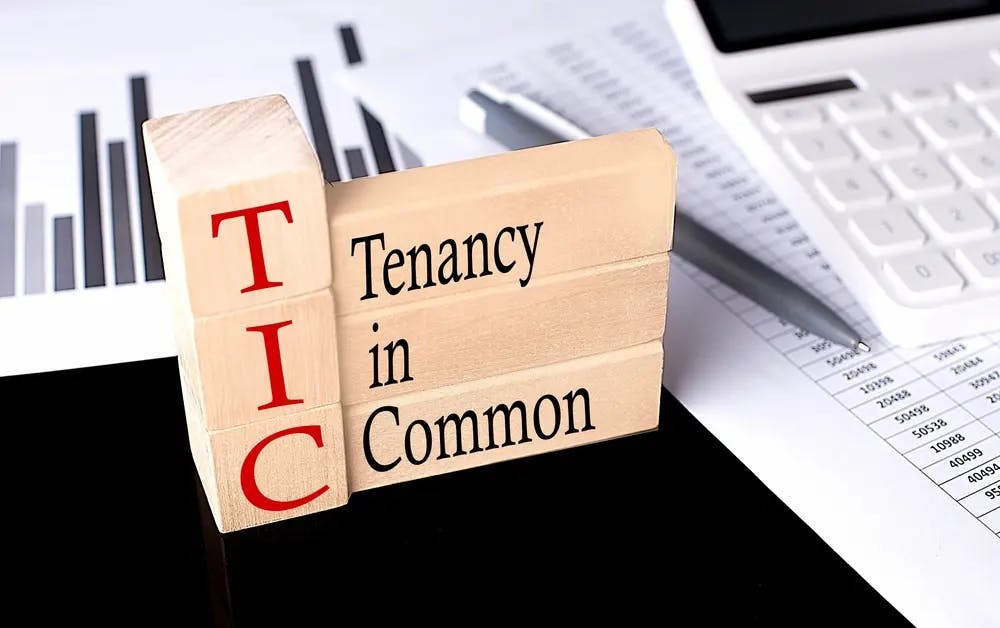
Tenants In Common Care Home Fees | Tenancy In Common Explained
Through tenancy in common, you and your partner each own a portion of your home. Here, we've explained how tenants in common care home fees works.

Dementia Care Home Costs In The UK | 2025 Statistics
Here are the average dementia care home costs across the UK for 2025, including residential dementia care and nursing dementia care.

Dementia Tax Explained | Do You Have To Pay It?
People with dementia usually have to pay for their own care, depending on the value of their capital. We've explained the dementia tax and how it affects you.

Can My Son or Daughter Continue To Live In My House If I Go Into Care?
We've explained if your son or daughter can continue living in your house if you go into care, if you're unsure what getting care means for people in your home.

How Do You Get Diagnosed With Dementia? | Getting a Dementia Diagnosis
If you think you or your loved one could have dementia, it's important to get it diagnosed early. Here, we've explained how to get a dementia diagnosis.

Coping With a Dementia Diagnosis - Support Available + Steps To Take
If your loved one has been given a dementia diagnosis, knowing what to do next can feel overwhelming. We've rounded up support available and the next steps.

The Different Stages of Dementia | Early, Middle and Late Stages
There are four different stages of dementia: Pre-clinical, early-stage, mid-stage and late-stage. We've explained these stages and what they mean.

The Different Types of Care Available To Older Adults Explained
There are numerous types of care to choose from. We've explained the different care homes and home care options for older adults, along with alternatives.

When Should Someone With Dementia Go Into a Care Home?
If your loved one has dementia, the safest environment for them could be a care home. We’ve explained when someone with dementia should go into a care home.

Care Needs Assessments: What They Involve + How To Apply
A care needs assessment works out what kind of care you or your loved one requires. Here, we’ve explained how to arrange an assessment and what it involves.

What Were the New Rules For Care Payments?
In October 2025, new rules for care payments were due to be introduced, affecting whether and how much you'd pay for care. These rules have now been scrapped.
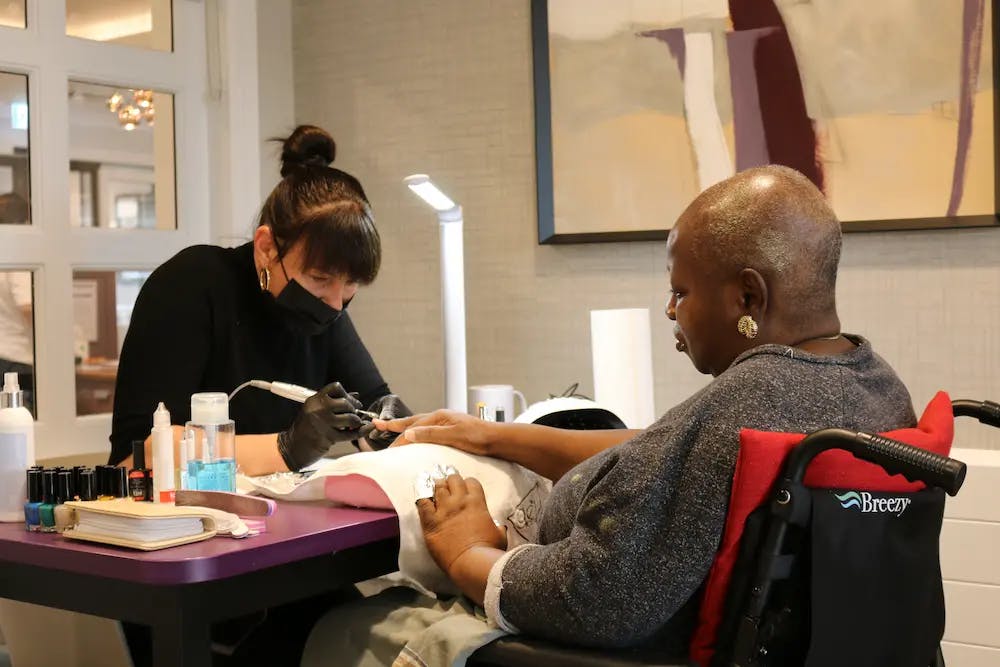
Meet The Care Home Residents Sharing Their Secrets To Help Younger Generations With Self-Confidence
Residents at Brookwater House Care Home in Enfield, London, have shared their secrets to helping younger generations find self-confidence in the modern world.
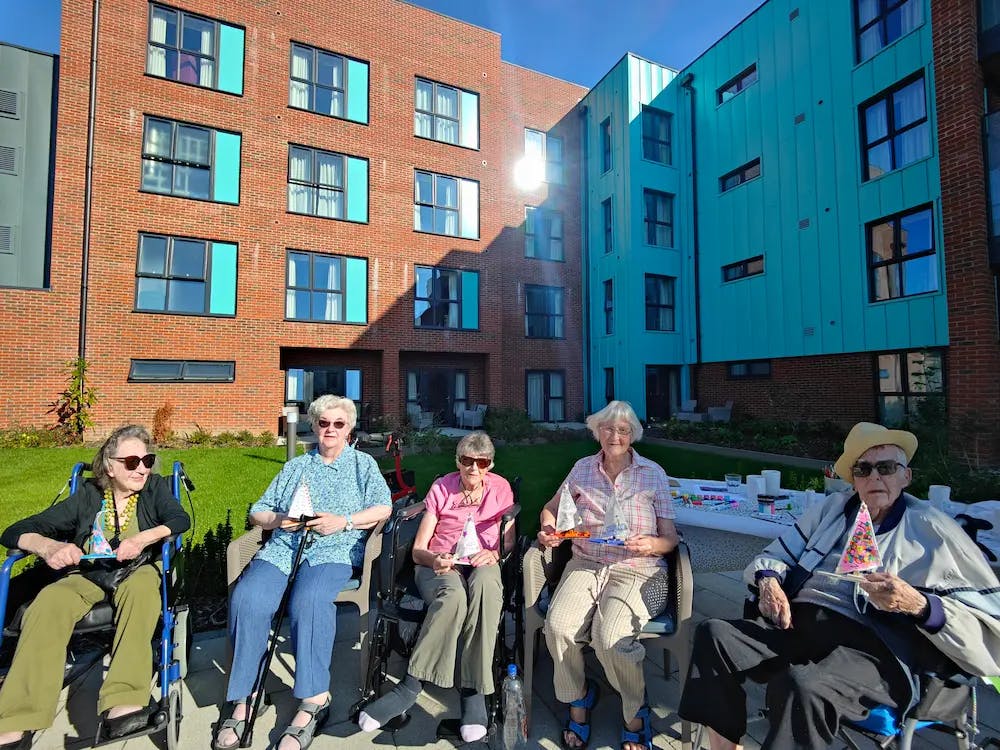
Care Home Residents Mark Southampton’s Annual Boat Show By Racing Their Own Boats
In the lead-up to the Southampton International Boat Show, residents at Alston House Care Home in Eastleigh have been by creating and racing their own boats.

World Alzheimer’s Month | The Five Biggest Alzheimer’s Myths
Our research has revealed the biggest myths about caring for someone with Alzheimer’s. These can affect those living with the condition and their caregivers.

Care Funding in England | Do You Have To Pay For Care?
Depending on your savings, you may be eligible for support with paying care fees in England. Here, we've explained what you need to know about care funding.

ARCO UK - Representing the UK Integrated Retirement Community Sector
ARCO represents the UK’s Integrated Retirement Community sector. We’ve explained what ARCO do and have highlighted some amazing ARCO-partnered retirement homes.
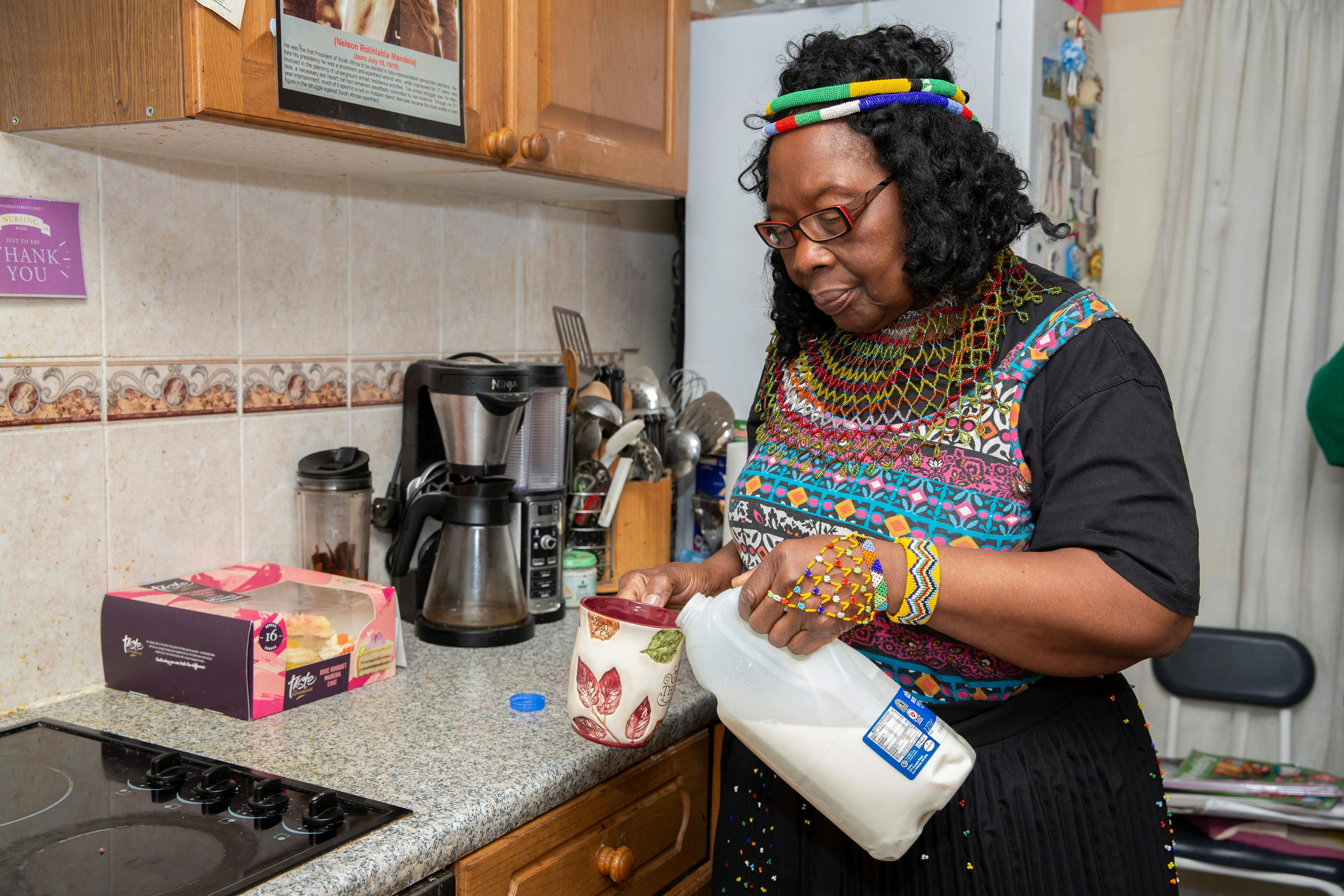
Informal Carers - Key Facts & Support Available in 2025
Being an informal carer is rewarding and challenging alike. So, we’ve explained everything informal carers need to know, including what resources are available.

Benefits For Pensioners Over 70 | Boost Your Retirement Income
There’s a range of benefits available to pensioners. We’ve gone over each of these benefits here, including whether you’re eligible and how to claim.
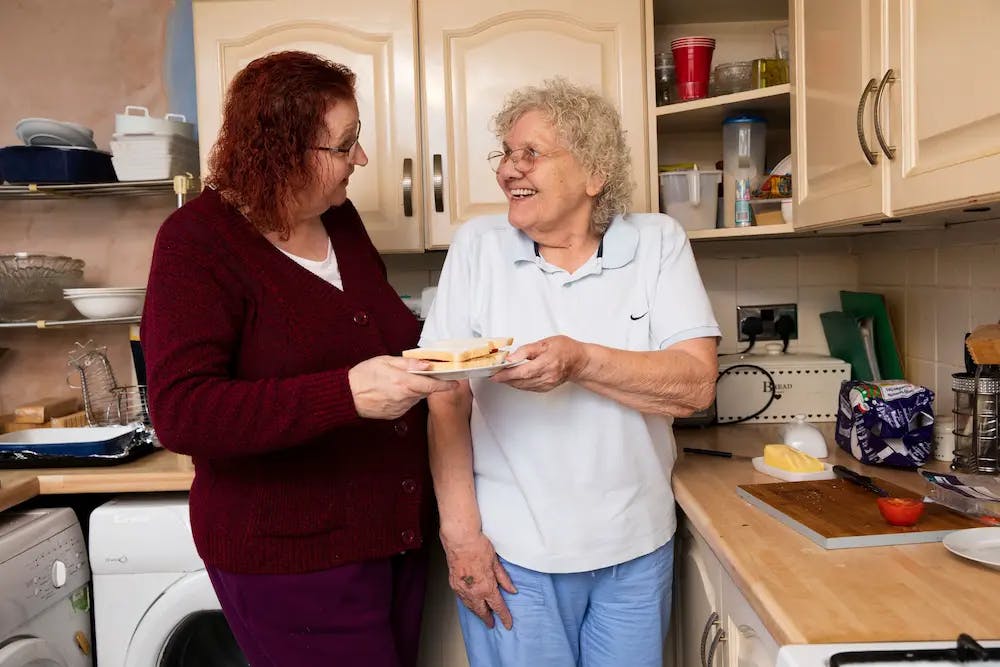
Disability Living Allowance (DLA) For Adults
Disability Living Allowance is a benefit for people with a disability who need financial support. Though this is being replaced, many people still claim it.

How to Create a Sensory Garden For Someone With Dementia
Sensory gardens stimulate the senses while also having a calming effect on the mind, often for people with dementia. Here's how you can create a sensory garden.

What Is Pension Credit and Are You Eligible?
Pension Credit is a benefit you can begin receiving once you pass the State Pension age. It’s aimed at older adults who require financial support.
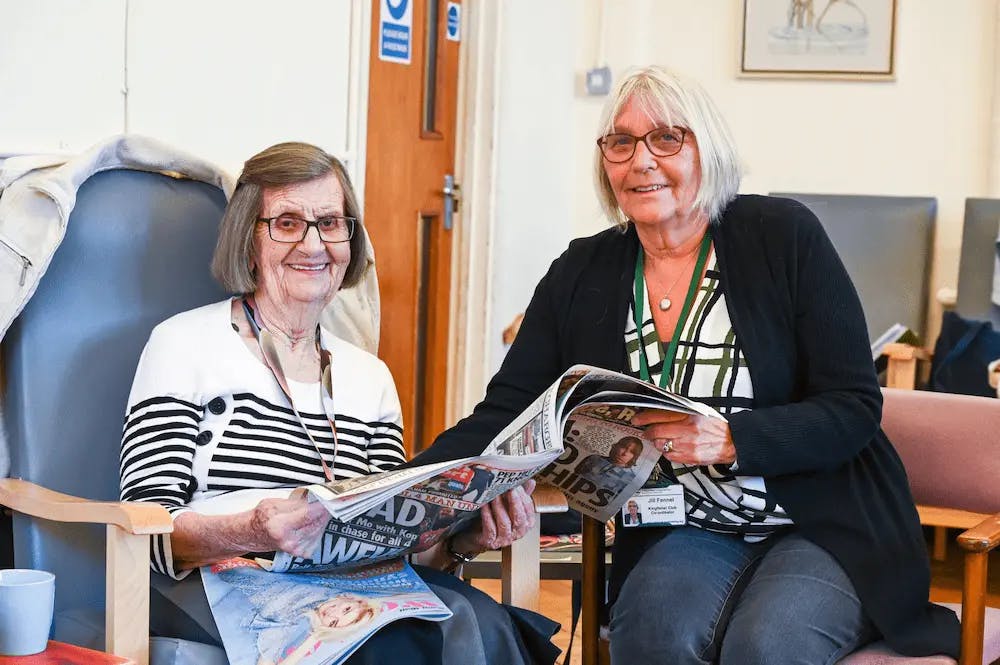
What is Social Care and Who is it For?
Social care supports disadvantaged adults, older adults or children. Social care can include things like personal care, social work and emotional support.

What is Sheltered Housing? Supported Living For Older Adults
Specifically designed for older adults, sheltered housing allows you to stay independent while knowing that help and support are available if required.

Person-Centred Care Explained - Why Is It Important?
Person-centred care is about making sure people who use care services are at the centre of everything, with their individual circumstances considered.

Meet Lottie's Care Experts
As Lottie has grown, so has Lottie's wonderful team of Care Experts! Find out more about them and life at Lottie.

9 Ways To Create a Dementia Friendly Christmas For Your Loved One
Christmas is a wonderful time, but can be tough for those with dementia. As more people search for support, here's how to have a dementia-friendly Christmas.

What is Warden Controlled Housing?
Warden-controlled housing is an option for older adults who require additional care. Here, we’ve explained exactly what warden controlled housing is.
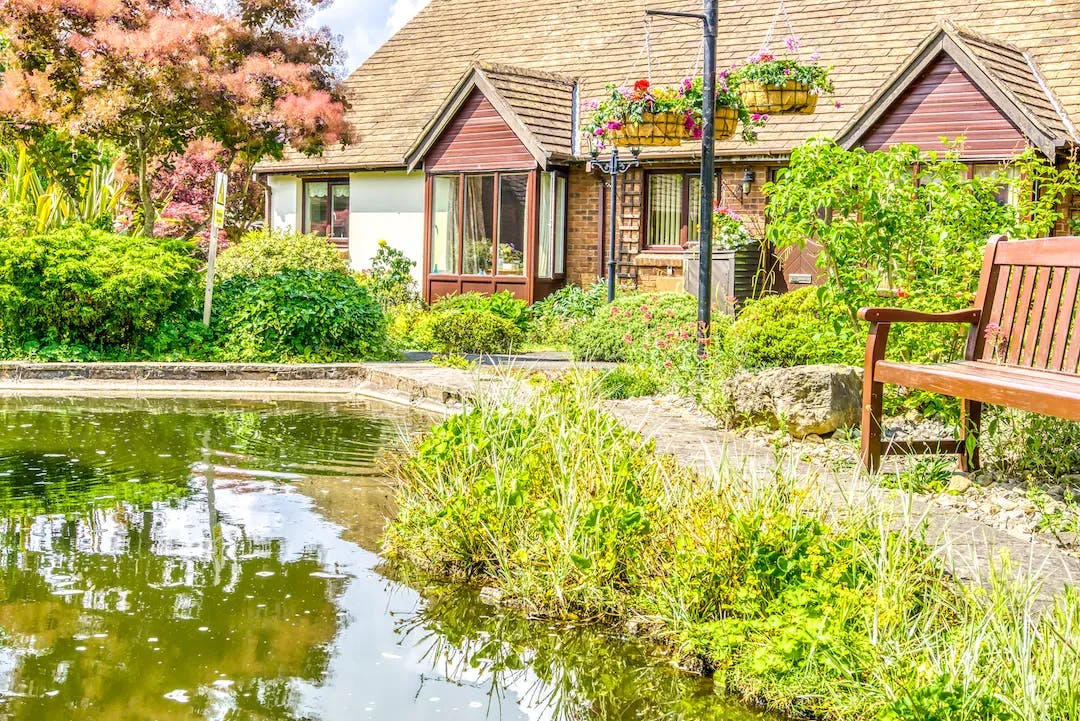
What is a Dementia Village? The Future of Dementia Care
The groundbreaking approaches adopted in dementia villages - including Hogeweyk in the Netherlands - have caught the eye of scientists and the media alike.

Reminiscence Therapy For Dementia and Its Benefits
Through reminiscence therapy, photographs, personal possessions and music can all help stimulate fond thoughts of the past for individuals with dementia.

Deferred Management Fees | How They Work In Retirement Properties
A deferred management fee becomes payable when you permanently vacate a retirement home. We’ve explained what deferred management fees are and how they work.

What is an EMI Unit in a Care Home?
EMI stands for Elderly Mentally Infirm and refers to care home residents with Alzheimer's and other forms of dementia. EMI units offer specialist care.

What Does the 12-Week Property Disregard Mean? What Happens To My Home?
The purpose of a 12-week property disregard is to provide enough time to decide how your property will help you fund any care costs in the future.

The UK's Cost Of Living Crisis: How to Support Your Elderly Loved Ones During the Winter Months
As the colder months approach, more older adults than ever before are struggling to keep up with the cost of living and energy crisis.

What is Advocacy in Health and Social Care?
Advocates in health and social care will support you through complex processes, including arranging a needs assessment and organising your personal budget.
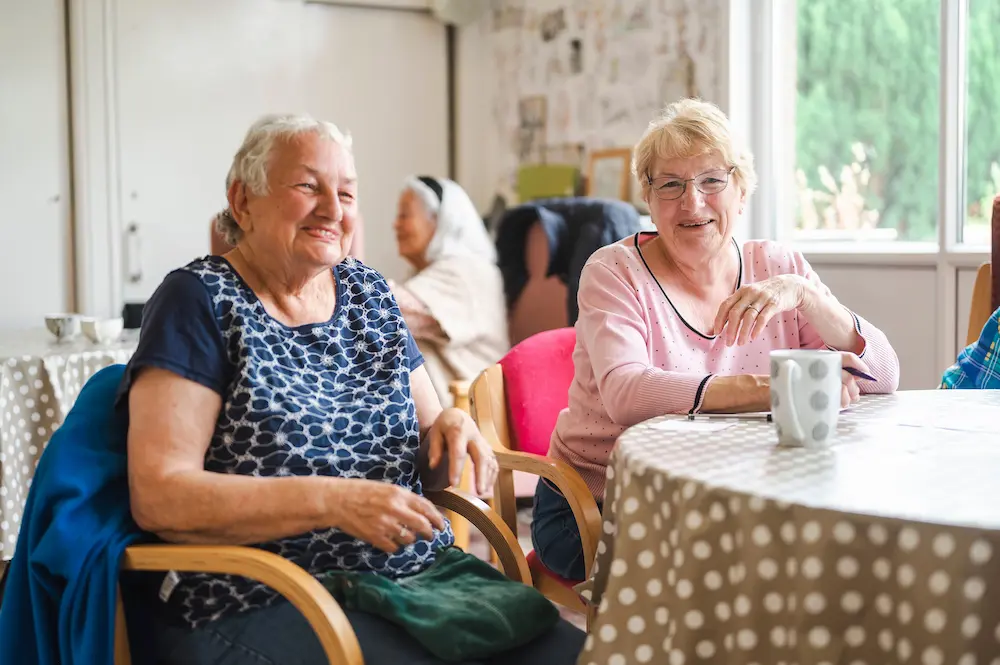
What are the 6 C’s of Care and Why Do They Matter?
To ensure care providers offer an excellent level of support, the NHS introduced the six C’s of care. Learn more about these and why they're important here.

Care Home Costs & Care Fees UK Average For 2025
When researching and choosing a care home, you should be clued up on the exact costs and fees. For more information, read our handy guide on care home costs.

Young Carers Support - What Help is Available in the UK?
Our research has found that online searches from young carers looking for help have significantly increased. Learn more about available support here.

10 Best Retirement Villages By the Sea - Amazing Coastal Destinations
England boasts some idyllic seaside resorts. If you're nearing retirement and love the coast then check out our 10 best retirement villages by the sea!

What Is the Care Quality Commission (CQC)?
The Care Quality Commission (CQC) is England’s independent regulator of health and social care. The CQC ensures excellent care is provided to residents.

Personal Independence Payment Explained (and How to Claim It)
Personal Independence Payment (PIP) is a benefit that helps people with extra costs caused by living with a long-term health condition or disability.

Immediate Needs Annuity For Care Costs
If you or your loved one quickly require a regular income to pay for care fees then an immediate needs annuity for care costs could be the right option.

Promoting Independence in Care
Independence is key to helping the elderly maintain a good quality of life. It’s crucial then that care services are able to promote independence in care.
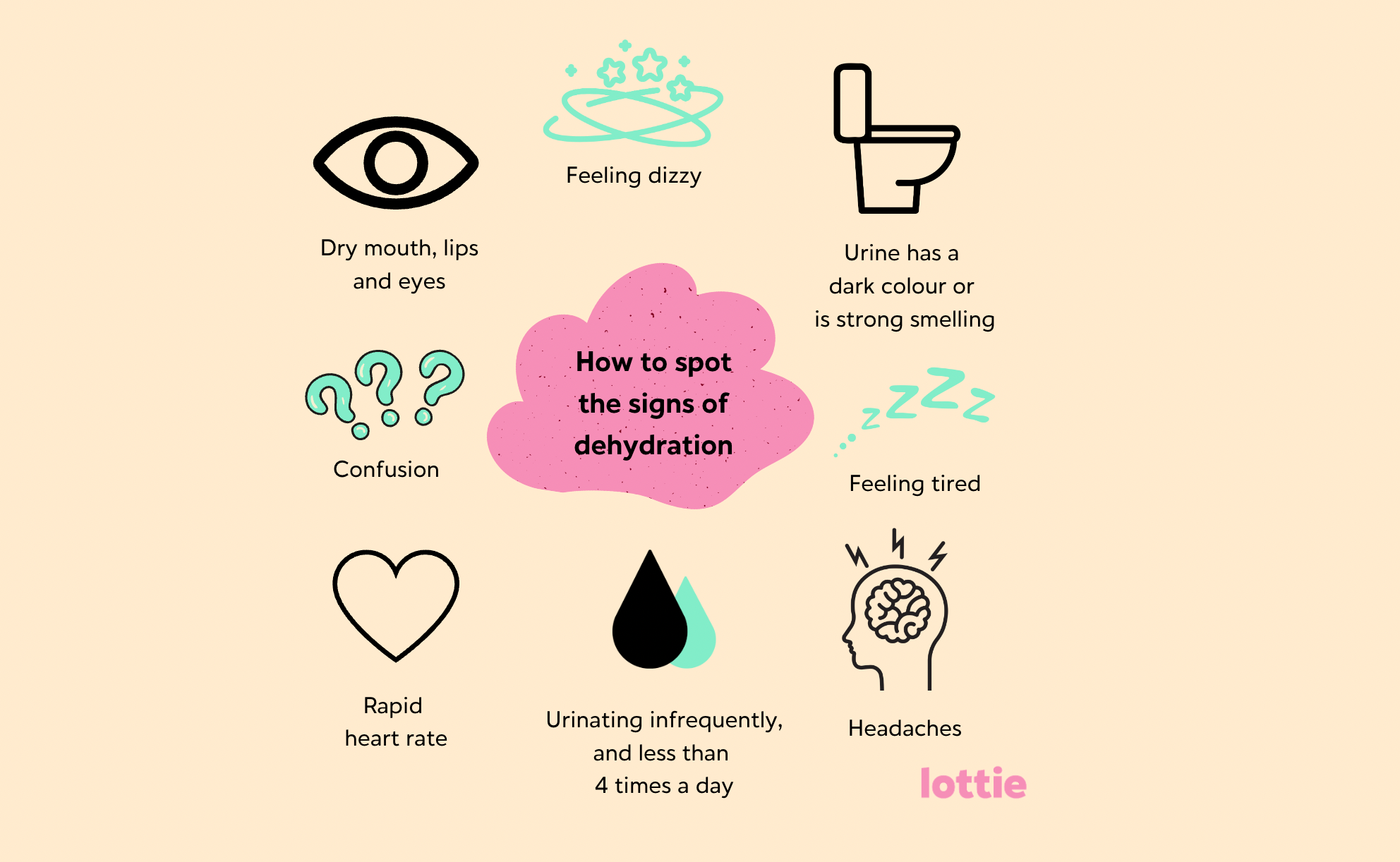
What are the Symptoms of Dehydration in the Elderly?
As we get older, our ability to deal with hot weather diminishes. When looking after an elderly loved one, you should know the symptoms of dehydration.

Financial Assessment For Care Fees
A financial assessment decides whether your local authority should help with care fees. This article explains how to get a financial assessment for care fees.

‘Unretirement’ Is on the Rise Amongst Elderly Workers Across the UK
New research has found a surge of older workers returning to work after retiring. The cost-of-living crisis and a desire to keep busy has led ‘unretirement’.

Social Services Elderly Care Packages Explained
Social services will create an elderly care package that lists the care and support required to meet your needs. This package will be part of a care plan.

How to Take Care of a Loved One Experiencing Sundowning
Sundowning in dementia is common - yet the signs, symptoms and causes can be hard to spot. Read our guide on sundowning and dementia here.
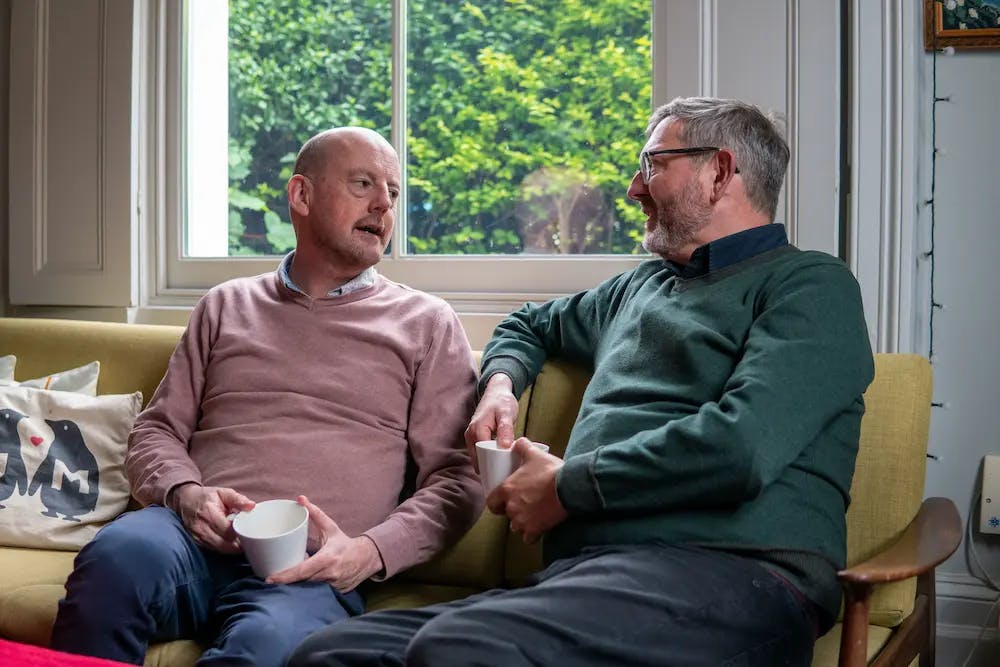
Caring For Someone with Dementia: Tips & Advice
Caring for someone with dementia can be challenging yet often rewarding. Better understanding dementia and how it progresses will make caring easier.

What is a Memory Care Home?
Memory care provides housing and 24/7 care for those living with Alzheimer’s and other forms of dementia. Learn what memory care is and its benefits.

The Average Retirement Home Costs in the UK (2025)
Here's how much retirement homes cost up and down the UK, along with the additional fees that go with owning a retirement home.

The Best Retirement Villages Near You: 15 Luxury Developments In The UK
Here are 15 of the best retirement villages in the UK that you should check out!

Deferred Payment Agreements for Care Home Fees
This article tackles deferred payment agreements - an arrangement with your local council where they'll pay for your care and you'll repay later on.

NHS Continuing Healthcare: Free Care Support
NHS continuing healthcare covers the full cost of an individual’s care and residential accommodation as a result of a disability, accident or illness.

What Happens With Your Pension in a Care Home?
We've taken a look at what happens to your state pension when you enter a care home, along with other benefits that you may receive.

Can You Put a House in a Trust to Avoid Care Home Fees?
Many people consider solutions like selling their family home or putting this home in a trust to avoid care home fees - but is this allowed? Learn more here.

Are Next of Kin Responsible for Care Home Fees?
If your parents are entering a care home, you may be wondering whether next of kin are responsible for care home fees. We've answered this here.
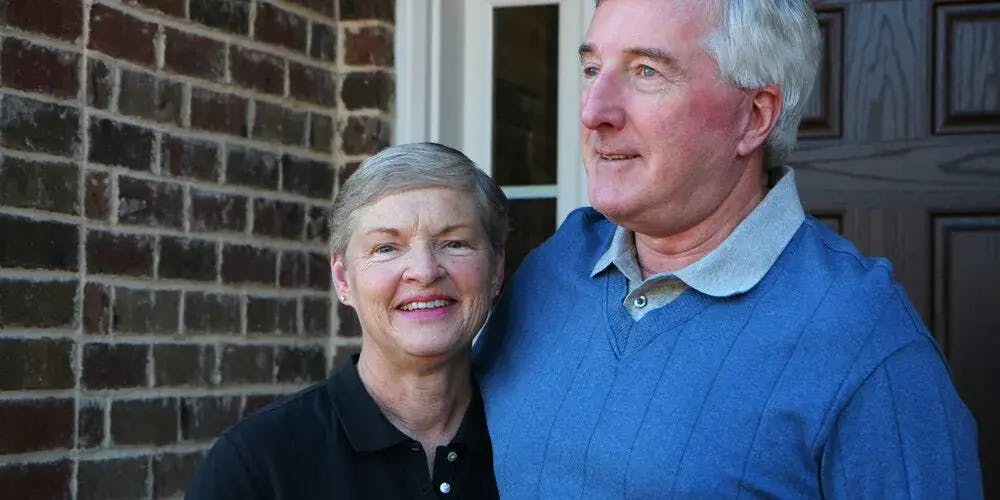
How Do Care Home Fees Work With Jointly-Owned Properties?
Find out how a jointly owned property can affect your care home fees and whether you'll need to sell this property to pay for your fees.

NHS Funded Nursing Care Explained
What is NHS-funded nursing care and who is eligible for it? Learn more about this type of care and what it involves here.

Promoting Dignity in Care: What It Means
In a care home, the term 'dignity' is one that often crops up. But do we understand the true meaning of dignity in care?

The Benefits You Can Claim In A Care Home
There are several benefits and allowances you can claim in a residential or nursing home to help you out with care costs.


